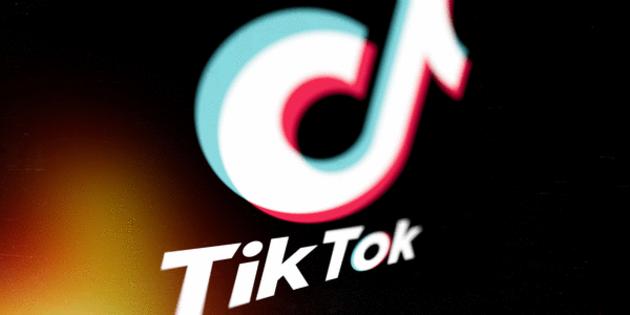Can Trump persuade the Supreme Court to stand aside so he can solve the TikTok problem?
Published in Political News
WASHINGTON — President-elect Donald Trump is telling the Supreme Court that he can make a deal that will resolve the national security dispute over TikTok and preserve the video site for 170 million Americans.
All the justices need to do, he says, is to stand aside and suspend a pending law that could shut down TikTok on Jan. 19, the day before Trump takes office again.
"President Trump alone possesses the consummate deal-making expertise, the electoral mandate, and the political will to negotiate a resolution to save the platform," his attorney said in a friend-of-the court brief filed Friday night.
His plan might work, at least to buy more time.
The justices had agreed to make a fast-track decision on the potentially momentous issue involving social media and free speech.
"I think the court is likely to see great benefit in issuing a stay and little downside," said University of California, Berkeley Law Dean Erwin Chemerinsky. "The case poses a novel and very difficult First Amendment issue. Never before has the government tried to ban a medium of communication, but there also is a history of judicial deference to national security claims."
Before Trump's intervention, TikTok appeared to face a difficult fight in the court.
The House and Senate had passed legislation by large bipartisan majorities requiring the platform to separate itself from its Chinese owner or to shut down in this country.
President Joe Biden signed the bill into law in April. And by its terms, it was scheduled to take effect in 270 days.
Although the justices are not shy about striking down federal regulations, they are wary of overturning an act of Congress, particularly one that is based on threats to national security.
The U.S. appeals court in Washington cited national security when it upheld the law earlier this month. In a 3-0 decision, the judges said the law did not target speech or expression. Rather, lawmakers were convinced the Chinese parent company could gather personal data on millions of Americans, the judges said.
If the law took effect on Jan. 19, Apple, Oracle and other U.S. companies could have faced large civil fines if they continued to work with TikTok.
Trump's attorney D. John Sauer filed a friend-of-the-court brief that differed in tone and substance from all the others. Rather than weigh in on the First Amendment question the justices had agreed to decide, he explained why Trump was better-suited to decide it.
"Through his historic victory on November 5, 2024, President Trump received a powerful electoral mandate from American voters to protect the free-speech rights of all Americans — including the 170 million Americans who use TikTok," he wrote. "Moreover, President Trump is one of the most powerful, prolific, and influential users of social media in history."
Noting that Trump has 14.7 million followers on TikTok, Sauer argued that the president-elect is well-positioned "to evaluate TikTok's importance as a unique medium for freedom of expression, including core political speech."
He also wrote that as the founder of another social-media platform, Truth Social, Trump has "an in-depth perspective on the extraordinary government power attempted to be exercised in this case — the power of the federal government to effectively shut down a social-media platform favored by tens of millions of Americans."
"In light of these interests — including, most importantly, his overarching responsibility for the United States' national security and foreign policy — President Trump opposes banning TikTok in the United States at this juncture, and seeks the ability to resolve the issues at hand through political means once he takes office."
In 2020, Trump had voiced alarm over TikTok because of its Chinese ownership. Lawmakers later heard classified briefings that convinced them the foreign ownership posed a danger.
But by the time the law won approval, Trump had switched sides. He said he believed TikTok helped him win the support of young voters.
"TikTok had an impact, so we're taking a look at it," he told reporters two weeks ago. "I have a little warm spot in my heart."
A year ago, his attorney Sauer drew criticism from some legal experts for boldly asserting that Trump as a former president had an absolute immunity from criminal charges for his official acts while in office.
But in July, he won a 6-3 ruling from the Supreme Court that gave him and Trump what he had sought.
Sauer is now set to represent Trump and his administration before the Supreme Court as U.S. solicitor general.
He did not say precisely what the court should do now, only that it "should consider staying the statutory deadline to grant more breathing space" to the incoming administration and that one provision in the law allowed for a 90-day extension before it took effect.
The court asked for responses to the competing briefs by next Friday. It scheduled two hours of argument for Jan. 10.
It's not certain the justices will readily comply with Trump's request.
Two weeks ago, former Trump attorney Noel Francisco filed an appeal on TikTok's behalf urging the justices to put the law on hold for a brief period. But the justices brushed aside that suggestion and said they would decide whether divestiture law violated the First Amendment.
"I am skeptical Trump's intervention will make a difference," said Alan Rozenshtein, a University of Minnesota law professor who has written about the pending law.
He noted that the Supreme Court denied TikTok's request to stay the law because it did not think TikTok could meet the requirements for a stay: a reasonable chance of winning on the merits.
"Trump's argument does not change that," he said. "It may be bad luck for TikTok (and Trump) that the law goes into effect the day before inauguration, but such is life."
©2024 Los Angeles Times. Visit latimes.com. Distributed by Tribune Content Agency, LLC.




























































Comments